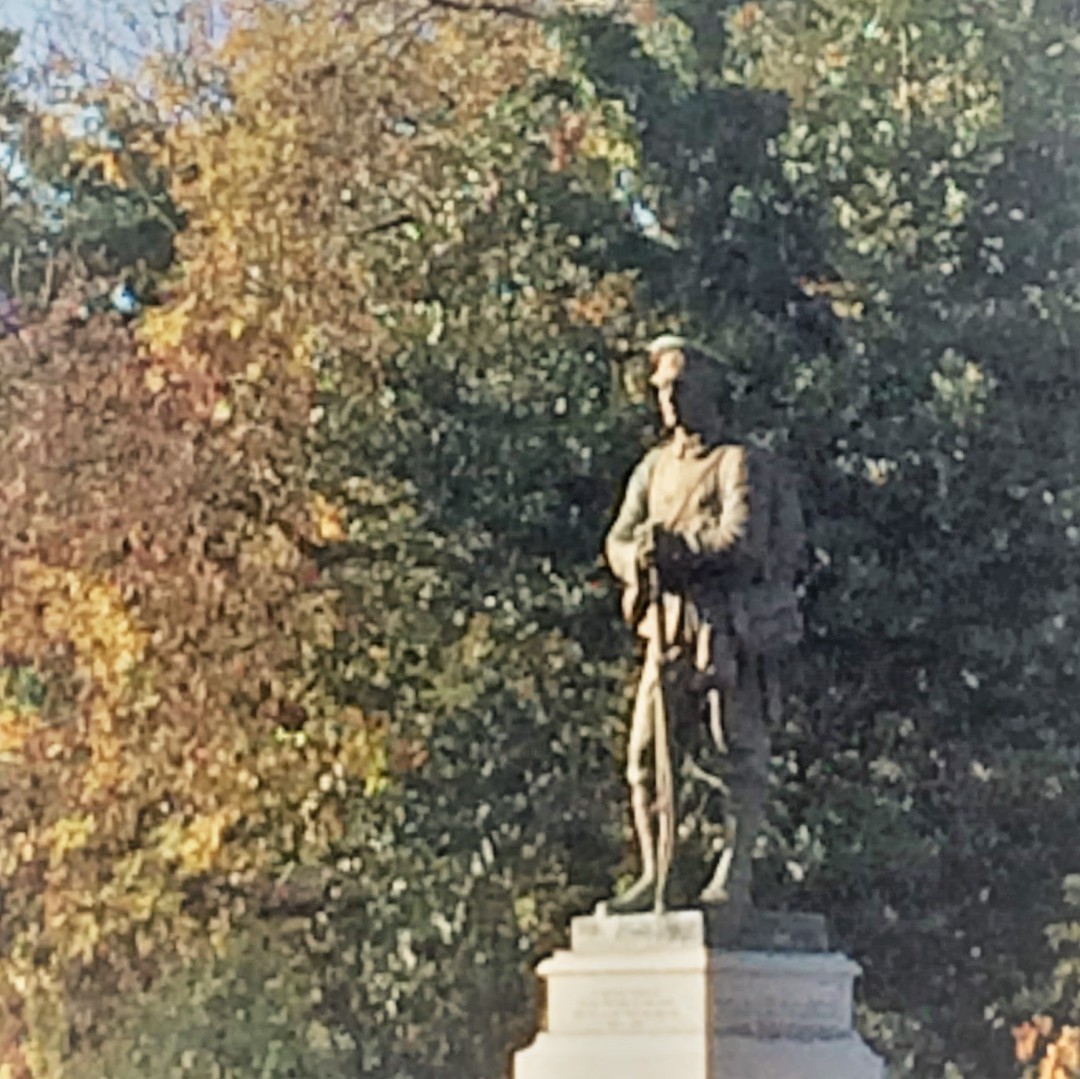
Silence falls on the sunlit square of turf
outside Dartford’s library. A soldier
with a rifle, all plinth and age-stained bronze,
looks on. Poppy people stand with closed-eye stares.
November colours shuffle in the trees.
The silence is the thing: the unfilled gap
between. I think of dugout silence,
the fire step, the Woodbines whiled away;
the rat-lice trench-foot days that screwed the minds
with silent screaming shells of wasted fear.
I think of letters written to and from;
the scareful hope of waiting for the post;
the silence in the reading of the words.
I think of silence in the unlived years;
the stories that cannot be forgotten
because they did not happen. I feel cold.
I walk back up the hill to where young George
is playing Sunday morning football. There is
no silence here. Teams of boyish men
criss-cross open fields, fighting foot-to-foot,
attacking and defending, launching volleys,
and firing shots on goal. Then, as a cloud
bursts, an arch of rain-refracted light
crowns the shouts of peace and freedom.







Recent Comments